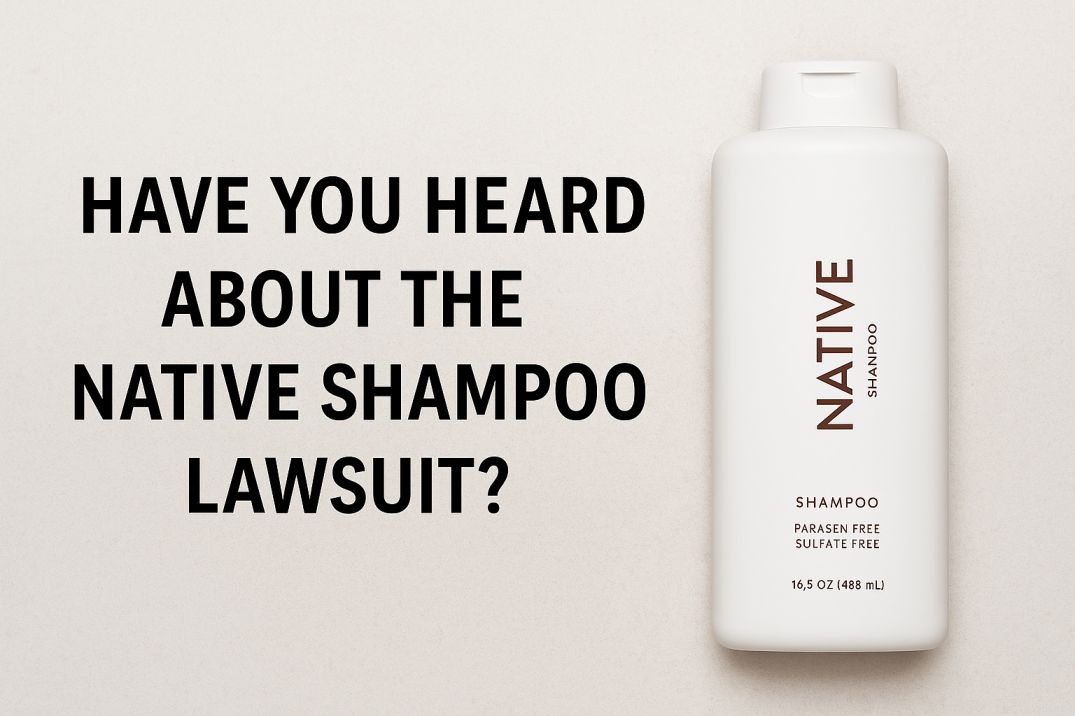Native, a well-known personal care brand, is now facing legal trouble. A class action lawsuit claims the company lied about the safety of its shampoo. Customers believed they were buying a clean, chemical-free product. They trusted the brand’s promise of using only natural ingredients. That promise is now in doubt.
The lawsuit says Native’s shampoo contains harmful substances, which were not listed clearly. People who bought the product feel betrayed. They say they would not have spent their money if they had known the truth. Many of them chose Native because they wanted a safer option than regular shampoos.
This case has caught the public’s attention. News outlets, blogs, and social media are all talking about it. As the issue grows, Native faces more than just legal risk. Its brand image is at stake. A loss of trust can hurt sales, shake investor confidence, and bring long-term harm. Native may need to take quick steps to protect its reputation and limit financial fallout.
What Is Native?
Native started in 2015 in San Francisco. A Harvard graduate founded the brand to make safe, natural deodorant. People liked the idea. The company grew fast. In 2017 Procter & Gamble bought Native for $100 million. Since then it added more product like shampoo body wash, and sunscreen.
Many customers trusted Native. They believed the products had clean, natural ingredients. Now that trust is under question.
What Is the Lawsuit About?
The lawsuit accuses Native of false advertising. Customer claim the shampoo contain PFA. These are harmful chemical known as “forever chemicals.” The label said the shampoo was safe and natural. The lawsuit says that was not true.
The plaintiff say they would not have bought the shampoo if they had known about the PFA. Native has not made any public comment yet.
What Are PFAs?
Their full name is perfluoroalkyl and polyfluoroalkyl substance. Companies started using them in the 1950. These chemical help product resist water, oil and heat.
You can find PFA in many everyday item. They are in fast food wrapper waterproof jacket cosmetic stain resistant carpet and non stick cookware. That makes them common in home restaurant and store.
The big problem is that PFAs do not break down. They stay in the environment for a long time. They also build up in the human body over time. This is why people call them “forever chemicals.”
Health studies link PFAs to serious issues. These include cancer liver damage hormone problem and weakened immune system. Even small amounts may pose risks after long exposure.
The Native shampoo lawsuit focuses on this point. The product claims to be natural and safe. But the presence of PFAs tells a different story. Customers say they feel misled. They trusted the label and expected clean ingredients. The lawsuit argues that using PFAs breaks that trust.
This question lies at the heart of the case. Can a product still be called “natural” if it contains forever chemicals? That what the court must decide.
What Is a Class Action Lawsuit
A class action lawsuit let a group of people sue a company together. One case speaks for everyone in the group. This type of lawsuit works well when many people have the same issue.
If the court agrees, affected customers may get compensation. Class action lawsuits often end in large settlements. One famous case was against tobacco companies in 1998. That case ended in a $206 billion deal.
Right now, the Native lawsuit is still early in the legal process. The court must decide if it meets the rules for class action status.
What Do Customers Say?
Many Native users feel upset. Some say they trusted the brand because it claimed to use clean ingredients. Now they feel tricked. Social media posts show frustration. People are sharing stories and photos.
Some users said the shampoo caused dryness. Others mentioned hair loss. These claims have added fuel to the case.
Not everyone had problems. Some customers say the product worked fine. Hair type and skin sensitivity may play a role. Reactions vary from person to person.
What Could Happen Next?
If the claims prove true, Native could face serious consequences. The company might need to:
-
Pay money to customers
-
Recall the shampoo
-
Remove PFAs from the formula
-
Fix how it advertises its products
This case could also harm the brand’s reputation. Even if the court dismisses the lawsuit, people may stop trusting the brand. That kind of damage takes years to fix.
On the other hand, Native could win in court. If the shampoo has only trace amounts of PFAs, or if the label meets legal rules, the lawsuit might fail. The final decision depends on lab results and what the lawyers can prove.
Why It Matters
People care about what goes into the products they use. Brands that sell “natural” items must be honest. Customers expect safety. When companies break that trust, they face backlash.
This lawsuit shows how important it is to read product labels. Words like “natural” don’t always mean safe. That lesson matters across the beauty and wellness industry.
Final Thoughts
The Native shampoo lawsuit has sparked a lot of debate. People feel angry, confused, and disappointed. Many trusted the brand without question. Now they are asking if that trust was a mistake.
Native built its name on clean, safe products. It used words like “natural” and “pure” to win over health-conscious buyers. Those promises set high expectations. Now the brand must prove those claims were true.
If the shampoo contains harmful chemicals, Native must take full responsibility. The company will need to fix its formulas, change its labels, and make things right with its customers. A refund or product recall may not be enough. People expect honesty.
If the claims turn out to be false, the damage is still done. Many customers feel let down. Native must rebuild that trust from the ground up. That takes time, action, and transparency.
This case is a wake-up call for everyone. People should stay alert. They should ask hard questions about the products they use every day. Pretty words on a label don’t always tell the full story. Safety and truth should never be optional.
Muhammad Suleman Ahmad is a content writer covering lawsuits, legal explainers, and court-related topics for LawsuitDeck.com. His work is structured for clarity and general understanding.


